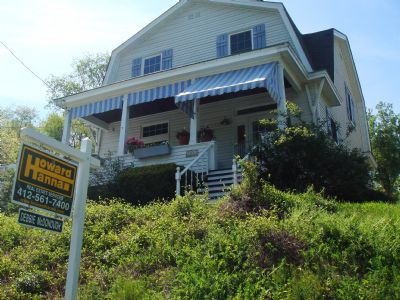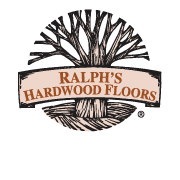Is the cost of installing or restoring hardwood floors matched by a corresponding increase in a home’s resale value?
That’s obviously a vital question for homeowners who are considering new hardwood floors, especially in anticipation of putting their home on the market. If the existing flooring isn’t hardwood, then wooden floors installation to replace the old flooring stands a great chance of elevating resale value.

Unfortunately, there’s no definitive answer. A multitude of variables can influence how hardwood flooring affects resale value, including these four common factors:
1. The type and condition of the existing floor (in cases of restoration).
If the floor is hardwood and in pretty good shape, but you re-sand and change the color to achieve a new look, the resale value gained will depend on the buyer.
If an existing hardwood floor is looks dull and worn, and you recoat or resand and finish it, then you’re adding some real value beyond aesthetic taste. An appraiser may recognize this value by rating the overall condition of the home as very good versus fair. A potential buyer, on the other hand, almost certainly will see the value of a new-looking floor versus one that will take significant resources (time and money) to rennovate.
2. The location of the home.
If you live or are building in an area where hardwood floors are common and expected, to not have them—or to have them in poor condition—could lower resale value. Therefore, installing, re-sanding, or simply refinishing can have a significant positive effect on a home's sales price.
On the other hand, wood floor installation or restoration in a neighborhood or region in which hardwood floors aren’t common isn't likely to result in a higher resale price because of the low demand for them.
3. The type of home.
If you install or restore hardwood floors in a low-price home, buyers probably aren’t going to pay extra for them because they can’t afford to.
Likewise, if you install expensive custom hardwood flooring in a mid-priced home, potential buyers may want hardwood floors but won’t be willing to pay extra for high-end or exotic hardwood.
In general, the most-positive effects on resale value occur when the level of extravagance is matched to that of the home.
4. Where the floors are in the home.
Because so many people suffer from allergies, hardwood floors in bedrooms can be a huge selling feature. Hardwood floors in the kitchen, because they are so easy to clean, are also highly desireable.
Value Beyond Resale
Keep in mind that resale value is by no means the only potential benefit of wood floor installation or restoration. There’s the likelihood that you’ll sell your home faster, even if it’s not for more. And of course—if you’re not selling right away—there’s the value of the sheer enjoyment you’ll get from having the hardwood floors you've always wanted.















